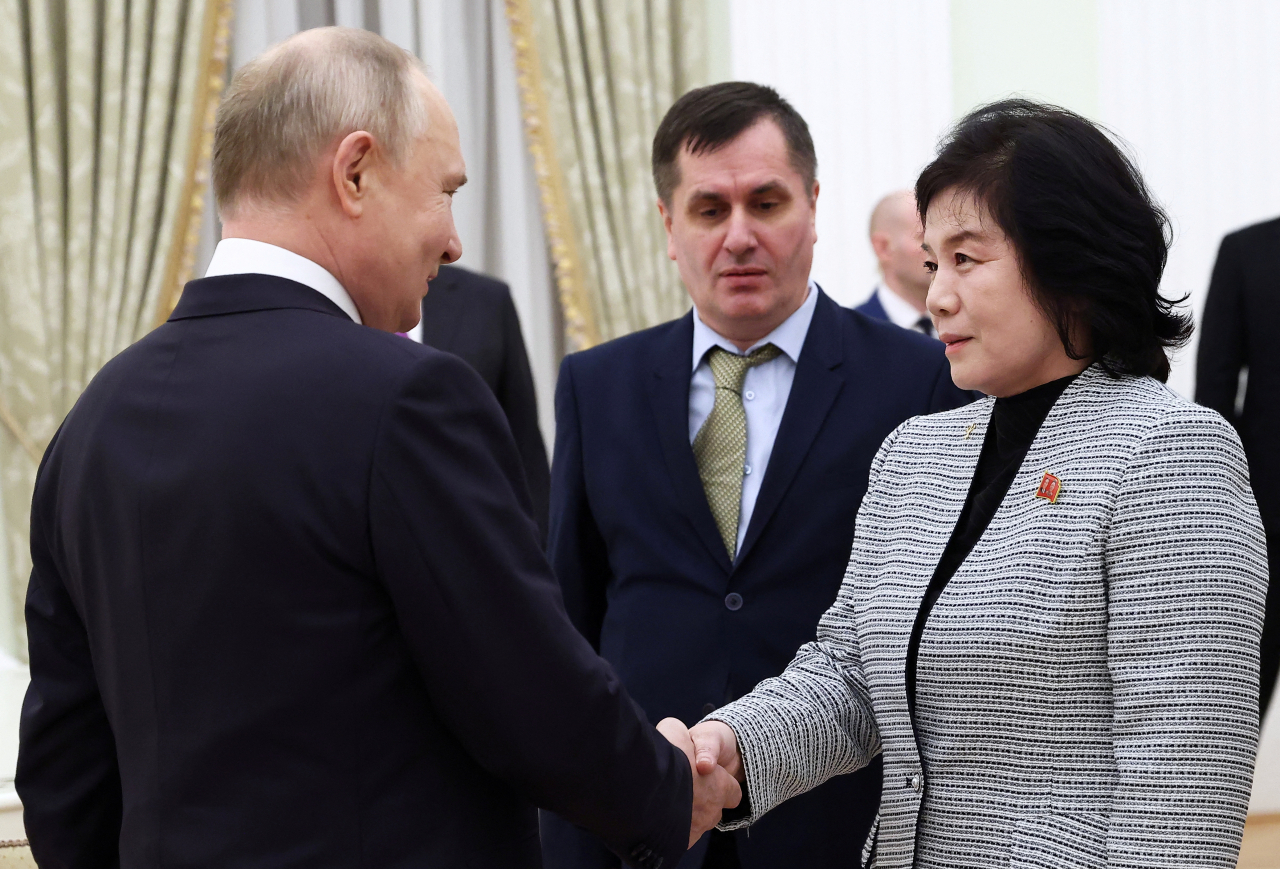 |
Russian President Vladimir Putin meets North Korean Foreign Minister Choe Son-hui in Moscow, Russia on Tuesday. (Sputnik/Pool via Reuters) |
Russian President Vladimir Putin's meeting with the North Korean foreign minister in Moscow raised the possibility of his trip to Pyongyang, Wednesday, intensifying concerns about deepening bilateral military cooperation posing challenges to the international order.
North Korea's Foreign Minister Choe Son-hui, on her first solo overseas trip since her promotion to the position in June 2022, made a three-day trip to Russia that began Monday.
The Kremlin announced that Choe and Russia's Foreign Minister Sergey Lavrov briefed Putin on the outcomes of their Tuesday meeting and that Putin's potential visit to North Korea was part of the agenda for Choe's trip. Additionally on Monday, Kremlin spokesperson Dmitry Peskov announced that Putin is anticipated to visit North Korea "in the foreseeable future."
Putin accepted an invitation from North Korean leader Kim Jong-un to visit North Korea at a summit held at the Vostochny Cosmodrome in the Amur region of Russia's Far East in mid-September last year.
Putin's face-to-face meeting with North Korea's top diplomat has sparked speculation that discussions regarding Putin's potential visit to Pyongyang have advanced.
The in-person meeting with Choe was "quite obviously a preparatory meeting for Putin's future visit to Pyongyang, which was recently announced by the Kremlin," said Fyodor Tertitskiy, a leading researcher on North Korea at Kookmin University in Seoul.
Putin has met only infrequently with foreign ministers from other countries. China's top diplomat, Wang Yi, met with Putin in Moscow in September last year. The meeting preceded Putin's subsequent trip to Beijing the following month in October, culminating in his summit with Chinese leader Xi Jinping.
Experts expressed diverse opinions on the timing, with some observers suggesting that Putin's trip may take place in late March, after Russia's scheduled presidential election, or even before it.
Hyun Seung-soo, a research fellow at the government-funded Korea Institute for National Unification in Seoul, floated the possibility of Putin choosing North Korea as the first overseas visit of his next term. The trip could take place following his all-but-guaranteed victory in the presidential election in March or his subsequent inauguration ceremony in May.
Putin's fifth term in the top office would secure his authority until at least 2030.
"If Putin selects North Korea as the initial destination for his overseas trip, it is intended to unveil the foreign policy direction Russia will pursue during his fifth presidential term. The direction will likely seek to reshape the international order by fostering solidarity with anti-American countries," Hyun told The Korea Herald. "Putin's visit to North Korea could carry symbolic weight, representing a facet of Russia's new diplomatic strategy."
If Putin visits North Korea this year, it would signify the first such trip in 24 years, since July 2000, during the leadership of Kim Jong-un's father, Kim Jong-il.
Putin last visited North Korea around four months after winning the presidential election for his first term. He was the first Russian or Soviet leader to visit North Korea.
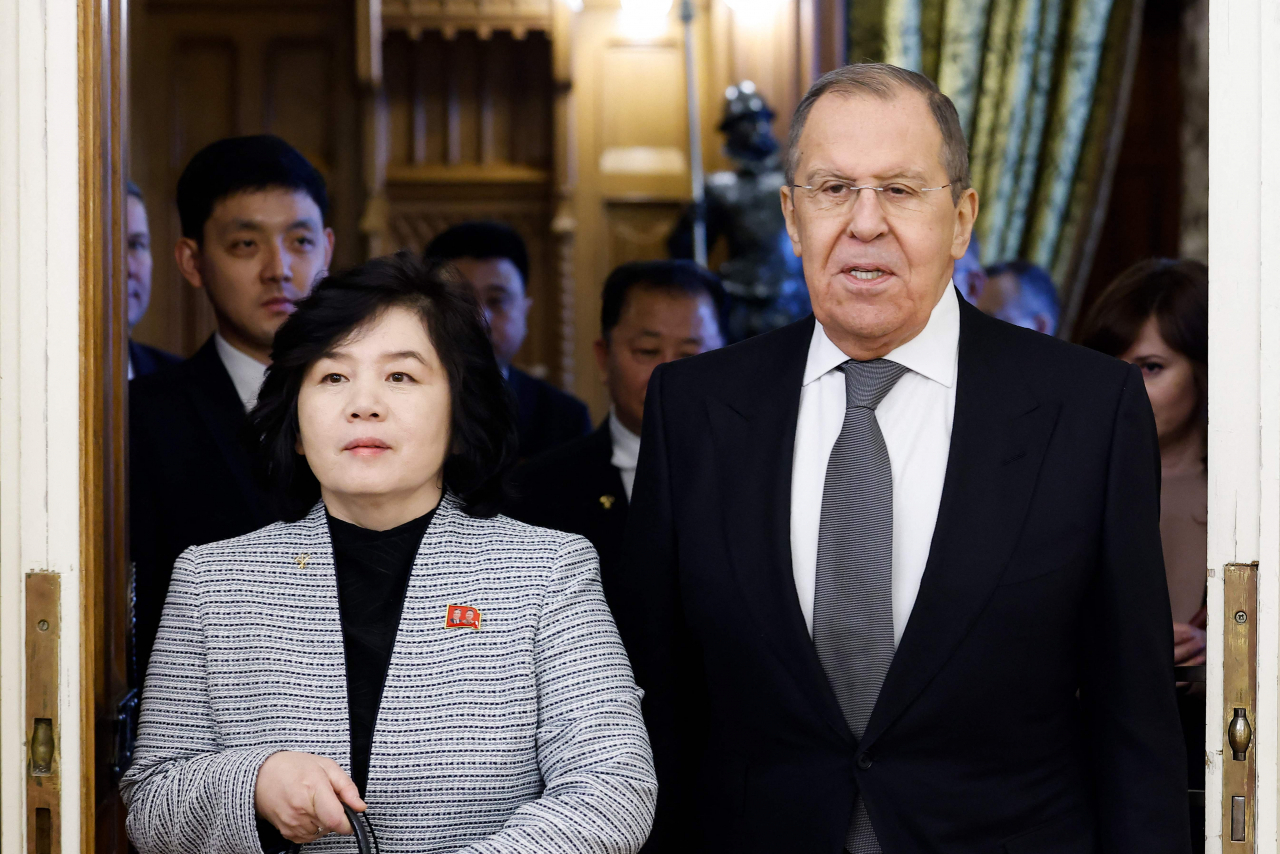 |
Russian Foreign Minister Sergei Lavrov meets with his North Korean counterpart Choe Son-hui in Moscow on Tuesday. (AFP) |
Further implications
Experts also pointed out the significance of North Korea initiating its diplomatic engagements for the year with Russia.
"It's crucial for us to accurately grasp Kim Jong-un's remarks at the summit in September last year. He said, 'Our country's top priority now is the relationship with Russia.' In this context, (Choe's trip to Russia) holds significant importance," Jeh Sung-hoon, a professor of Russian studies at Hankuk University of Foreign Studies in Seoul, told The Korea Herald.
"Moreover, historically, North Korea utilized its ties with Russia as a leverage point to proceed with nuclear negotiations with the United States. However, now there is a noticeable shift as North Korea appears to position Russia as a partner in fostering global anti-American and anti-imperialist solidarity," Jeh said.
Hyun explained that the meeting "fundamentally signifies that the cooperative solidarity between Russia and North Korea will be strengthened this year," despite the potential for significant shifts in the geographical landscape due to consecutive elections in countries around the world.
"In 2024, the geopolitical situation is anticipated to be quite unstable. Despite this, North Korea and Russia aim to demonstrate their commitment to solidify the cooperation and solidarity they pledged in 2023, remaining unaffected by external uncertainties," Hyun said.
Hyun also noted the potential rationale behind Choe's visit to Russia in January.
"While there is a symbolic aspect, another practical reason could be the high likelihood of diplomatic discussions regarding Russia's need for North Korean laborers to work and be dispatched to Russia," Hyun said.
A senior official at the Unification Ministry expressed concerns on Tuesday over the ongoing high-level exchanges between North Korea and Russia, which have raised the potential for additional illicit transactions.
The official, on condition of anonymity, said that Seoul has been closely monitoring signs of the redeployment of North Korean workers to Russia, a violation of UN Security Council Resolution 2397.
South Korea's Foreign Ministry on Wednesday underscored the significance that t "exchanges and cooperation between Russia and North Korea must adhere to relevant UN Security Council resolutions and contribute to peace and stability on the Korean Peninsula."
Experts suggested that the two foreign ministers were unlikely to engage in in-depth discussions on Russia's procurement of North Korean weapons, including ballistic missiles. However, one thing remains clear.
"High-level diplomacy between Pyongyang and Moscow suggests we have not yet seen the end of their expanding military and economic cooperation," said Leif-Eric Easley, professor of international studies at Ewha Womans University in Seoul.
In the meeting, Lavrov openly expressed Moscow's profound appreciation for Pyongyang's support of Russia's "special military operation" in Ukraine. He further highlighted that the two countries maintain "close and fruitful cooperation" at the United Nations and other multilateral organizations.
"The Kim regime is likely to provide more ammunition for Putin's illegal war in Ukraine while Russia facilitates further violations of UN Security Council resolutions in support of North Korean weapons and industrial technologies," Easley said. "Playing 'Cold War 2.0' geopolitics serves the interests of these pariah regimes that want to defy international norms, resist US pressure and mitigate reliance on China."
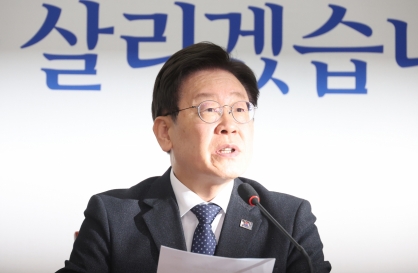
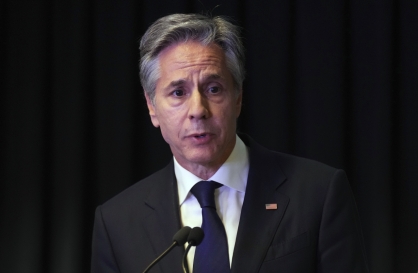
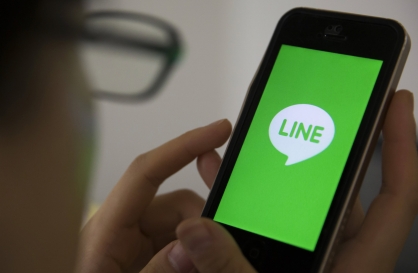
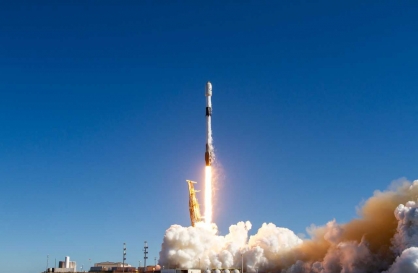
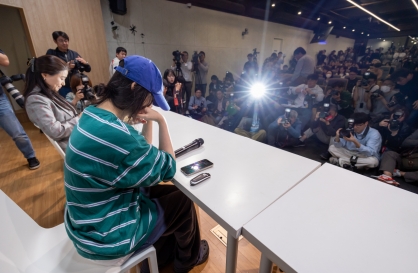
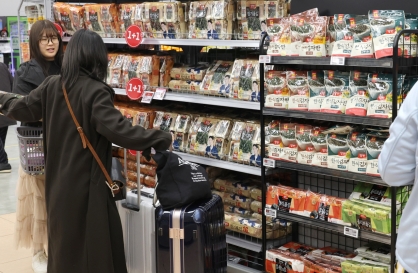
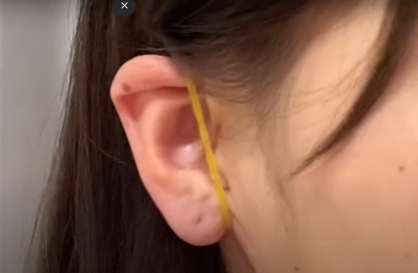
![[Weekender] How DDP emerged as an icon of Seoul](http://res.heraldm.com/phpwas/restmb_idxmake.php?idx=644&simg=/content/image/2024/04/25/20240425050915_0.jpg)